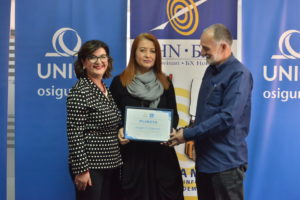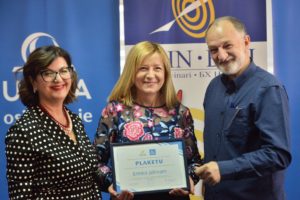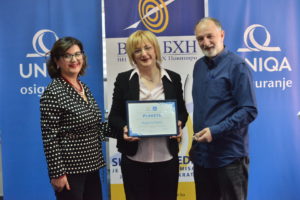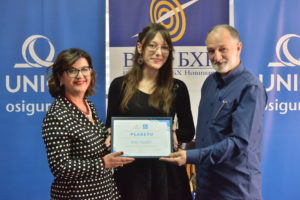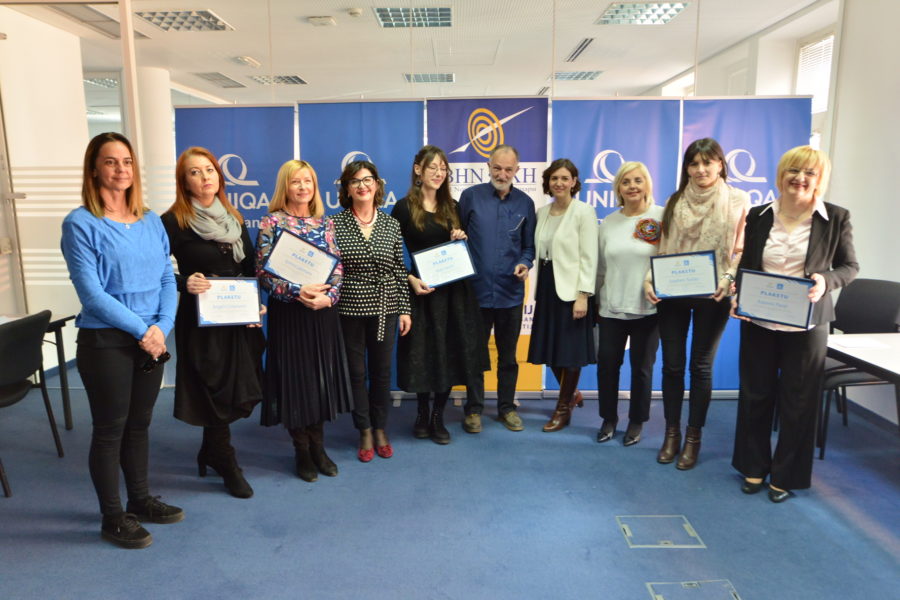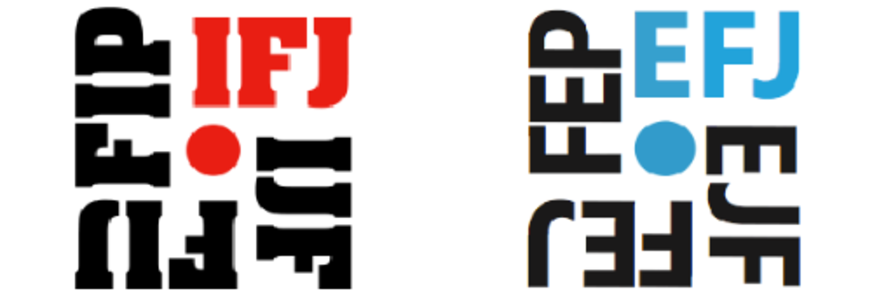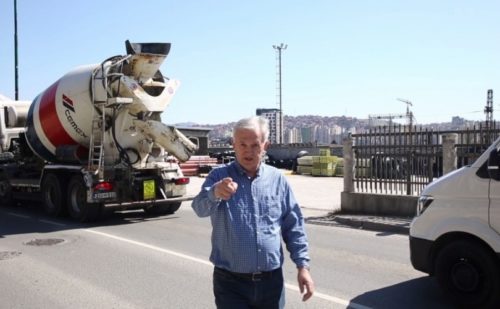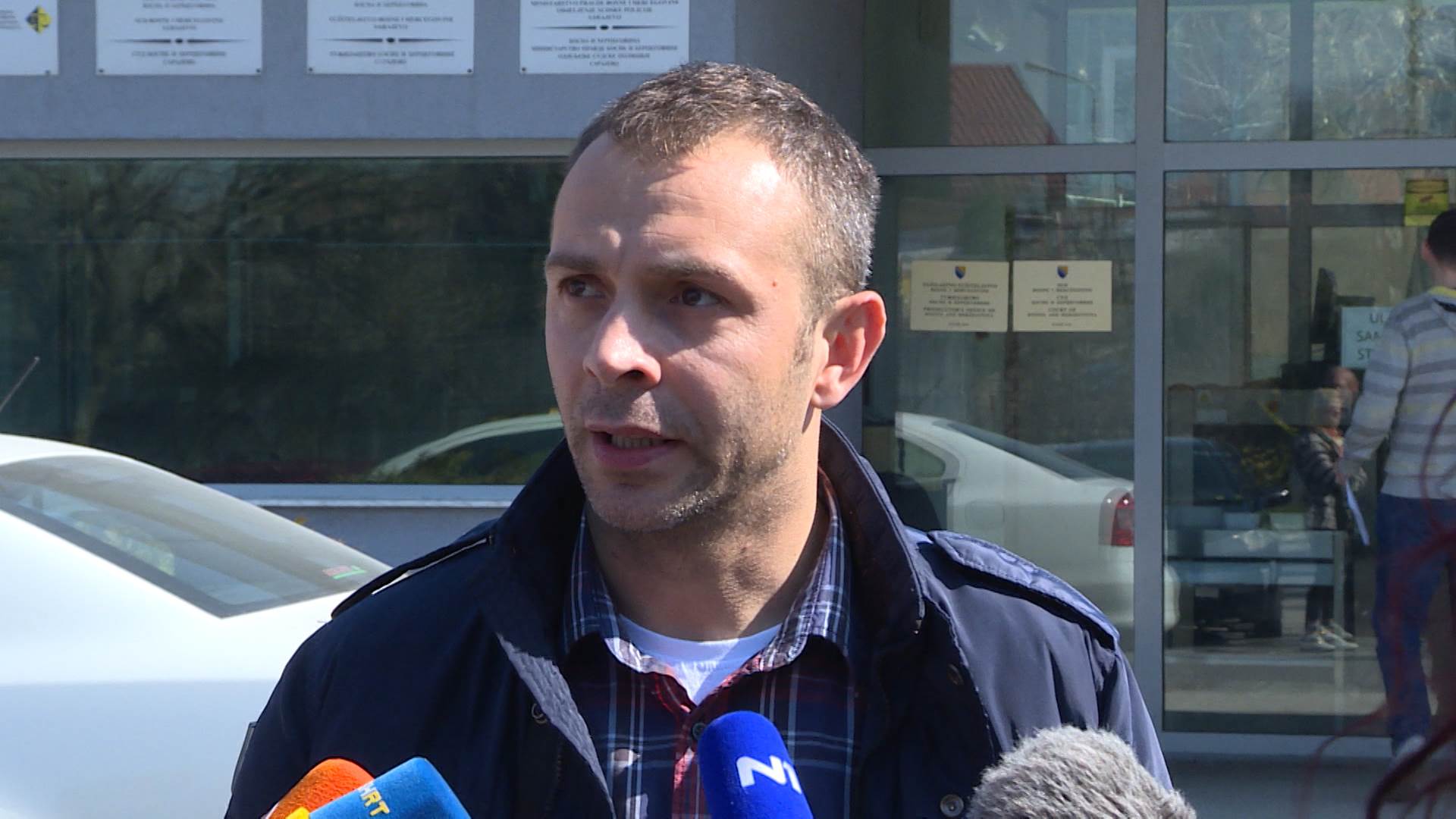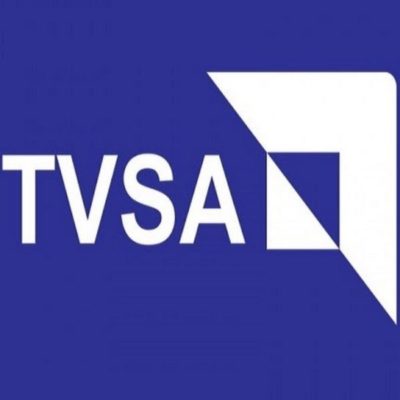SARAJEVO, 22.3.2019.-The omniscient Google has, upon a search for the subject titled: “There is no journalism without” has launched, on top of its list, completely different results, but also, equally true definitions that have, ever since, been subject to discussion, as far as professional journalism is concerned (although professional journalism in its genuine forms is slightly vanishing).
“There is no professional journalism without non – profit media” and “No profit – no professional journalism”, were the two subjects (titles) appearing on Google search result list and these two titles interfered, in terms of defining what seemed to be considered as journalism and what journalism should actually represent. One text outlined that “non – profit web sites have been the basis of professional
journalism”. Another text, on the other hand, stated that “newspapers and journalists do need profit”, “does not impact the quality of news broadcasted, posted, released or published” and that “we do need profit in order to protect liberty”
Work recognition
Although there are very few professional journalists left (at present) that are capable of recognizing the amount of profit which their work brings to media houses they are engaged with. This profit provides them with security, safety and during the current times, the profit (to some extent) does provide them with liberty semblance in all social segments, including liberty in relation to those that keep their eyes on society affairs and follow all social changes accordingly. Two of the above-mentioned definitions are the sole truth that media houses flounder within.
Those claiming that their work is not recognized and appreciated, have been struggling with those that, on the other hand, claim that profit-making displays the reward for the work conducted by the former group. Both claims seem to be correct and true. It is indeed the truth that “old – fashioned journalism, regardless to what extent it should be regarded and considered as constituent part of all types of journalisms today, does not attract the general audience. On the other hand, the truth is that journalism based on quick actions, exclusivity, equipped and decorated with all disposable items required for the text, unfortunately, often attracts more people.
Consequently, these figures withdraw other figures along, so we could conclude that today there can be no journalism without figures. Looking at the countless number of web sites, and having in mind that web sites are indeed the most simple way to launch the business in Bosnia and Hercegovina, everybody is fighting with numbers or figures and it is pretty difficult to remain and sustain such specific market, because of the unsettled rules allowing someone to exist and operate and someone who would favor the sustainability of professional journalism, rather than making personal profit instead.
Media incitement has been narrowed down to tactical and pre-election “charging” and also serving to finance suitable and biased web sites that would, upon requests, either share or spread political messages through the limitless internet space, or they would also serve as a polygon for money withdrawing and rewarding those that have taken the part during the money withdrawing process.
Instant salvation
Local web sites that should stand on the first defense line, thus protecting genuine democratic values and that should criticize the governing structures and society anomalies have presently been mostly covered by municipal budgets and them instead, mostly serve to announce press releases copied from official municipal web sites to yet another address, possibly with better photos attached to the
subject text or article.
Accordingly, local communities are unintentionally damaged because the governing official authorities are not exposed to public critics and large scale media houses use them only as a source for the copy – paste principle and some kind of patchwork. These media houses find their instant salvation in advertising local companies if there were any, and in commercial advertisements, despite the fact that local population does not recognize the general community – orientated benefits of these commercial advertising. People in such communities do not have enough space and room for choosing and selecting certain types of offers provided.
Regional web sites that managed to rise up from the scope of news and make one step forward into some other types of journalism tranches, have found themselves on the crossroad of “local” marketing and some even greater, but yet never the greatest cakes. They float in some kind of space of mid-level governance so their survival is narrowed down to goodwill of certain ministries or ministers, so marketing cakes often consist of annual order of greeting cards and messages for holidays, including eventual contracts with public enterprises (companies) that operate in the territory covered by these web sites or territories that these web sites try to cover.
Marketing of such, let’s call it mid-level of online media, operating far away from Sarajevo where the information concerning large – scale companies with significant amounts planned for commercial advertising campaigns are kept away from them, also including greeter need for commercial advertising, rely on the ability to convince the owners (entrepreneurs) and editors that having commercial advertisement within their web sites could also prove to be beneficiary for public companies.
Interspace and intermedia bickering
Although, it is, from the present perspective, ungrateful to speak about geographic frames of certain web sites, because the Net of all nets makes all parties involved ever present. Herzegovinian media, for instance, have full rights to state that they struggle with the distance from eventual financial sources hiding in Sarajevo. All great companies are seated in Sarajevo and all decisions brought by great
companies need commercial advertising or should advertise, are far away from Herzegovinian small places, and additionally, non – governmental organization and associations, including international parties in this particular field that support, encourage, abet and financially support media, are physically distant and far away.
And, as they say, what is far away from sights, is far away from marketing. From a certain point of the level, which, as it existed in some kind of marketing interspace, we could hear many speculations, regarding numbers, figures and accusations that some local webs sites, having advertised the public company, actually work something in favor of the political party that has impact on that public company.
Furthermore, the already intoxicated media space is additionally intoxicated with intermedia confrontations regarding who owns whom, and recently, certain researches and surveys proved that media entrepreneurs (owners), poorly biting marketing cakes, accuse other media houses of being loyal to someone just by seeing the commercial advertisement. This creates a non – productive rivalry
that proved and confirmed how money could and will literally spoil media, including journalists. Those lower media levels, (lower in terms of the number of viewers), vertical and horizontal from the head offices and seats of big public companies and decisions bringing – are unfortunately being avoided and ignored in marketing plans. Commercial advertising campaign thus covers strongest regional entities and most of them are still hungry for marketing mouths in the capital, so media sometimes rely on advertisements of large – scale internet services and local ministries, pointless local campaigns and rely on project writings as well.
Far away from the source
Even big projects do not go to lower levels, so media houses, tagged as parties or entities being subjects to political influence and imposed impact and due to “imposed” commercial marketing, and are not on the lists of those advocating and cherishing independent journalism. And then we come to the definition that without money there can be no independent journalism and close magic circle of figures and numbers placed between journalism letters.
It is clear that everything relies on figures and numbers today. Those with more visits shall be granted with more commercial advertisement space and room, because the purpose of commercial advertisements is, after all, to be presented to a greater number of people. But, it’s a shame that, in large space of our own shiftless, there is no way which those that advocate professional journalism, and they
are still too little to have significant figures and numbers that may eventually attract commercial advertisements, have the opportunity to remain and sustain on the marketing surface. Turning the blind eye by the state and media community regarding financial donations, often appearing commercial advertisements, shall (to those not willing to become media), eliminate both journalism and figures as
well.
Media that are far off from money sources, just as it once was deleterious to be far off from the information sources, shall have no bright future. Non – profitable media house can hardly survive and provide existence to their authors, so they consequently tear apart between the desire for professional journalism and desire for profit making with journalism almost always getting damaged at the end and
with journalists ending up with no profit made either. Profit in media still chases away journalists from professional journalism and instead it turns them into figures and numbers hunters, although both figures and numbers often do not match letters either.
This text is a part of E-Bulletin– ninth edition of special serial of BHN online bulletin implemented through the “Media and Public Reputation” (origin. “Mediji i javni ugled”) project, also representing a contribution to public debate regarding the transparency of media ownership and upholding and encouraging the passing of set of laws aimed to advance media field and information market in BiH.
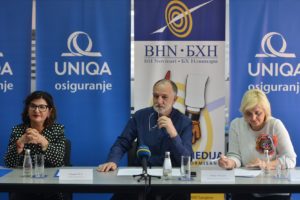 U uvodnom obraćanju direktorica Olević naglasila je da je za iskorak u pogledu razvoja svijesti o osiguranju iznimno važna kontinuirana edukacija o važnosti osiguranja koja će obuhvatiti sve koristi i prednosti ugovaranja polise osiguranja kako za građane tako i za privrednike i na taj način pozitivno uticati na potražnju za osiguranjem. „Svjesni smo da je to dugoročan proces i da je to zadatak svih učesnika na tržištu, uključujući i medije za koje je osiguranje, nažalost, nedovoljno istražena oblast. Mali broj medijskih profesionalaca se bavi ovom tematikom, tako da su rijetki članci koji bi pružili visoko informativne i obrazovne sadržaje. Zbog nedovoljne informisanosti većina građana ne shvata značaj osiguranja i zbog toga smatra da nema potrebu za osiguravajućim proizvodima. Vođeni time, prepoznali smo ovaj konkurs kao pozitivan i vrijedan našeg pokroviteljstva, koji je na našu radost podržao veliki broj medijskih profesionalaca, kroz edukativne radionice za medije i učešće na konkursu. Ovaj konkurs “kruna” je saradnje UNIQA osiguranja i medija, jedan viši nivo doprinosa razvoju medija i njihovih profesionalnih kompetencija i kvaliteta.“ zaključila je Olević te zahvalila svim učesnicima konkursa i organizatoru, BH novinarima.
U uvodnom obraćanju direktorica Olević naglasila je da je za iskorak u pogledu razvoja svijesti o osiguranju iznimno važna kontinuirana edukacija o važnosti osiguranja koja će obuhvatiti sve koristi i prednosti ugovaranja polise osiguranja kako za građane tako i za privrednike i na taj način pozitivno uticati na potražnju za osiguranjem. „Svjesni smo da je to dugoročan proces i da je to zadatak svih učesnika na tržištu, uključujući i medije za koje je osiguranje, nažalost, nedovoljno istražena oblast. Mali broj medijskih profesionalaca se bavi ovom tematikom, tako da su rijetki članci koji bi pružili visoko informativne i obrazovne sadržaje. Zbog nedovoljne informisanosti većina građana ne shvata značaj osiguranja i zbog toga smatra da nema potrebu za osiguravajućim proizvodima. Vođeni time, prepoznali smo ovaj konkurs kao pozitivan i vrijedan našeg pokroviteljstva, koji je na našu radost podržao veliki broj medijskih profesionalaca, kroz edukativne radionice za medije i učešće na konkursu. Ovaj konkurs “kruna” je saradnje UNIQA osiguranja i medija, jedan viši nivo doprinosa razvoju medija i njihovih profesionalnih kompetencija i kvaliteta.“ zaključila je Olević te zahvalila svim učesnicima konkursa i organizatoru, BH novinarima.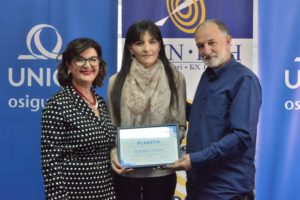 Obraćajući se u ime dobitnika nagrada, Svjetlana Šurlan sa portala Capital.ba je navela da je ovaj način takmičenja između novinara dobar, jer se medijski radnici detaljnije posvete temama koje nisu na pravi način ispraćene u javnosti. „Oblast osiguranja nedovoljno je približena građanima kao i koristi koje osiguranje nudi u svim segmentima. Ovo je naročito postalo vidljivo nakon poplava 2014. godine, od kada je samo djelimično povećana premija zbog čega je neophodno što više govoriti o prednostima osiguranja i kako bi građani postali svjesni da to nije trošak već ulaganje u budućnost.“- istakla je Šurlan.
Obraćajući se u ime dobitnika nagrada, Svjetlana Šurlan sa portala Capital.ba je navela da je ovaj način takmičenja između novinara dobar, jer se medijski radnici detaljnije posvete temama koje nisu na pravi način ispraćene u javnosti. „Oblast osiguranja nedovoljno je približena građanima kao i koristi koje osiguranje nudi u svim segmentima. Ovo je naročito postalo vidljivo nakon poplava 2014. godine, od kada je samo djelimično povećana premija zbog čega je neophodno što više govoriti o prednostima osiguranja i kako bi građani postali svjesni da to nije trošak već ulaganje u budućnost.“- istakla je Šurlan.